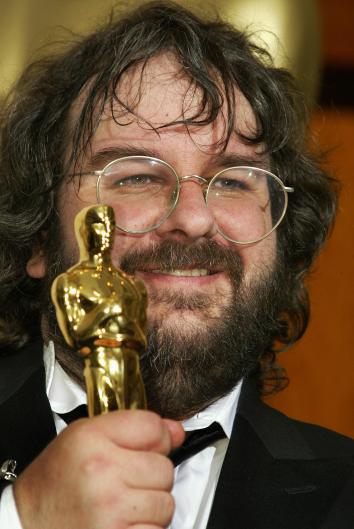In the winter of 1990, Twentieth Century Fox released the most blatant piece of Oscar-bait ever made. It wasn’t nominated for any Oscars. You’ve probably never seen it.
It’s no secret that the Academy of Motion Picture Arts and Sciences, which will announce the nominees for the 2014 Academy Awards tomorrow, has certain prejudices. Dramas tend to be favored over comedies. Historical epics and biopics over sci-fi and action. Studio pictures with big stars generally get preference over quirky indies. We all have a pretty good idea of what constitutes “Oscar bait,” but a forthcoming paper in the American Sociological Review by UCLA professors Gabriel Rossman and Oliver Schilke attempts to define it mathematically.
Reviewing nearly 3,000 Oscar-eligible films released between 1985 and 2009, Rossman and Schilke developed an algorithm to assess what makes a film most likely to be nominated for an Oscar. The factors include when a film is released; whether it’s being distributed by a major studio; whether the actors, writers, and directors of the film have previous Oscar nominations; and whether, according to IMDb, it features genres and plot keywords most associated with Oscar nominations.
After running the numbers, the movie that has—mathematically—the most Oscar appeal of any film ever made is 1990’s barely remembered Come See the Paradise, starring Dennis Quaid as a Los Angeles movie theater projectionist who is drafted into the army during World War II—while, back home, his Japanese-American wife and daughter are placed in an internment camp.
The movie certainly looks like Oscar bait on paper. It was distributed by a major studio; received a special December release in select cities to make it Oscar eligible; was directed by Alan Parker, who had already made Midnight Express and Mississippi Burning (the 22nd most Oscar-baity movie ever made); dealt with themes of war and racism and a tragic historical event; and, to top it off, was set in Hollywood. (Movies about movies do very well at the Oscars.) But it was apparently just not a very good movie. (Its most lasting legacy, I learned from Wikipedia, may be a popular soundtrack cue used in lots of trailers for better-remembered movies.)
The eclectic list of the 10 most Oscar-baity movies ever made, according to Rossman and Schilke’s equation, includes highly acclaimed Best Picture winners, beloved auteurist fare, and at least a couple of duds:
1. Come See the Paradise (1990)
2. Lord of the Rings: The Return of the King (2003)
3. The People vs. Larry Flynt (1996)
4. Born on the Fourth of July (1989)
5. Wild at Heart (1990)
6. Jackie Brown (1997)
7. The Three Burials of Melquiades Estrada (2005)
8. Schindler’s List (1993)
9. The Aviator (2004)
10. Confessions of a Dangerous Mind (2002)
The lowest scores were (starting from the very bottom):
1. When a Stranger Calls (2006)
2. Hotel for Dogs (2009)
3. Barbershop 2: Back in Business (2004)
4. Gray Matters (2006)
5. The Shaggy Dog (2006)
6. Phat Girlz (2006)
7. Drillbit Taylor (2008)
8. The Cookout (2004)
9. Looking for Comedy in the Muslim World (2005)
10. Couples Retreat (2009)
The IMDb keywords that have the highest level of correlation with nominations are “family tragedy,” “whistleblower,” “Pulitzer Prize source,” “physical therapy,” “domestic servant,” and “Watergate.”
Among the roughly 800 keywords with a zero score—no movies with these keywords have ever been nominated for an Oscar—are “zombie,” “food fight,” “breast implant,” “bestiality,” and, depressingly, “black independent film.”
Of course, this measure is beholden to IMDb’s weird and highly arbitrary keyword tagging system. The flukiest keyword in the top 50 may be “panties hit the floor,” which apparently includes such Best Picture-nominated films as Born on the Fourth of July, Broadcast News, and Juno, though one would assume that’s coincidental. On the other side, “wedding gown” and “homosexual kiss” are both on the zero list, though Oscar-winning films have featured both of those things.
Despite its limitations, the study is actually fairly reassuring: It takes more than plugging in some hot-button themes and a distinguished cast and crew to make a good—or at least acclaimed—movie. What’s more, making Oscar bait is, the paper says, a risky proposition. An actual nomination tends to boost a film’s box office—but when there’s no nomination, the “Oscar appeal” metric is negatively correlated with a movie’s profitability. If you’re going to release a depressing historical biopic, you’d better hope it gets nominated for something.
In an email to Slate, Rossman said he hadn’t yet run the algorithm on 2014’s contenders, though he noted that 12 Years a Slave “was released by an independent division of a major (Fox Searchlight), had a November release, genres that include ‘biography’ and ‘drama,’ and keywords like ‘slavery’ that load pretty strongly.”
Looking at this year’s contenders, American Hustle, The Wolf of Wall Street, Captain Phillips, and Dallas Buyer’s Club all seem likely to get high scores on the metric. Gravity and Her are more unexpected contenders, though they would get points for Sandra Bullock’s and Joaquin Phoenix’s past nominations. And probably nothing this year can top Lee Daniels’ The Butler for sheer Oscar baitiness: It’s a historical biopic dealing with race relations and starring a past Oscar winner that features “family tragedy,” a “domestic servant” and “Watergate.” And yet, if the experts are to be believed, it may be largely ignored by the Academy this year. We’ll find out tomorrow morning.
